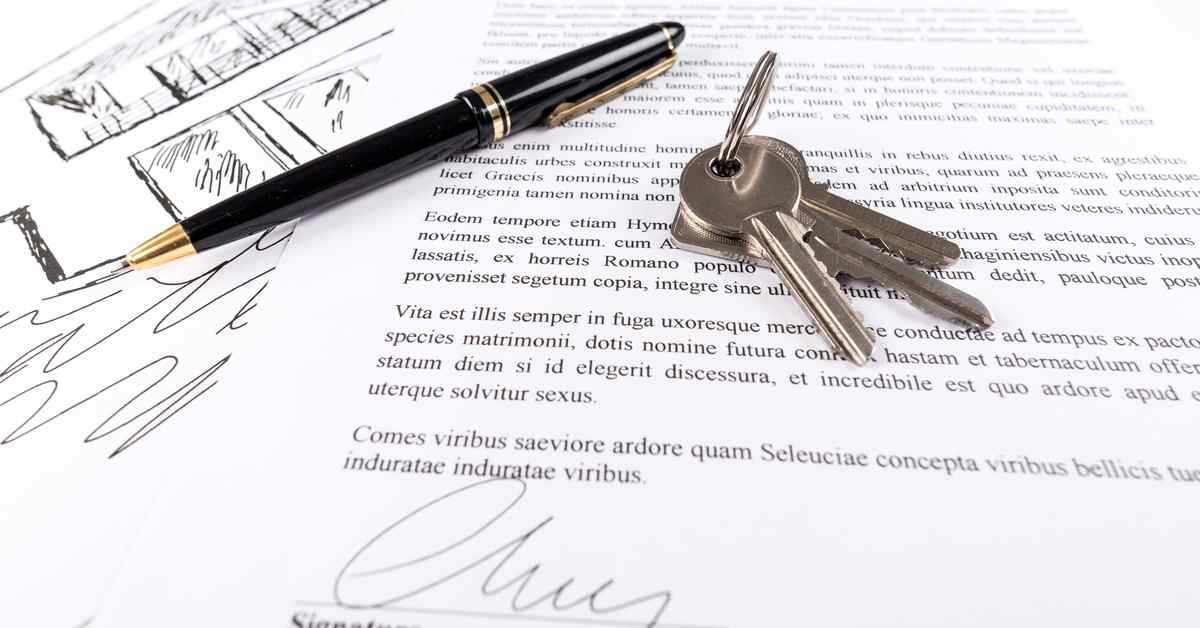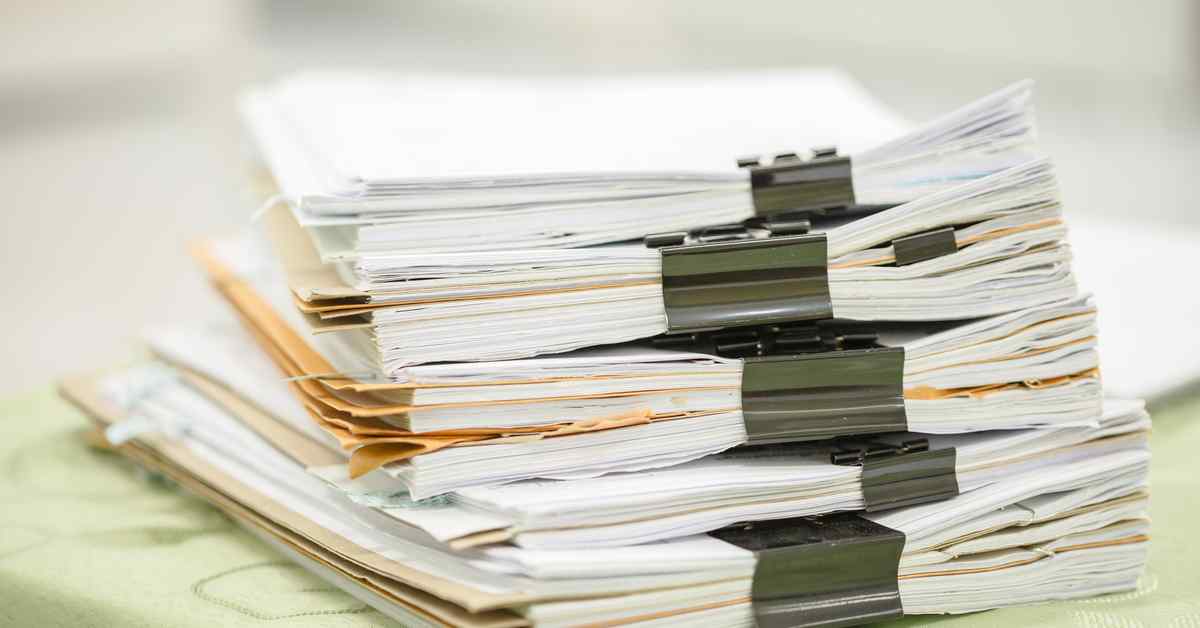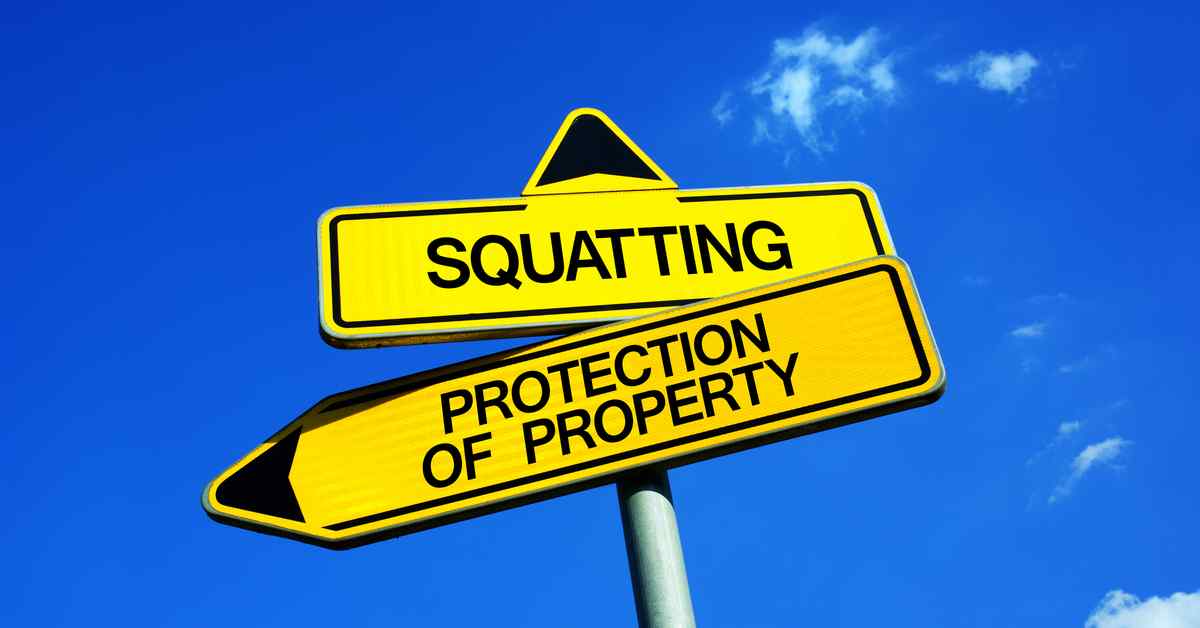Table of Contents
Quality Service Guarantee Or Painting Free

Get a rental agreement with doorstep delivery

Find the BEST deals and get unbelievable DISCOUNTS directly from builders!

5-Star rated painters, premium paints and services at the BEST PRICES!
Loved what you read? Share it with others!

Conveyance Deed: Meaning, Importance, Format & More
Table of Contents
Conveyance simply means transferring or transporting something from one place to another. In law terms, conveyance means the process of transferring property, assets, title, rights, ownership, etc. from one person to another. If you are purchasing or selling a property, then you must have a deed or contract to do so. A sale is not complete without a valid contract, which is a Conveyance deed. This is required for transferring all property rights to the legal owner.
What is a Conveyance Deed and Why is It Important?
A conveyance deed is the transfer of property rights, titles, and ownership from one person to another, not necessarily always for consideration.
A conveyance deed is necessary to make sure that the buyer, who buys the property has all the right over it and can hold, or sell it on his or her wish. The seller transfers all the legal rights of the property (movable or immovable) to the name of the buyer after signing the conveyance deed for a valid monetary consideration.
Quality Service Guarantee Or Painting Free

Get a rental agreement with doorstep delivery

Find the BEST deals and get unbelievable DISCOUNTS directly from builders!

5-Star rated painters, premium paints and services at the BEST PRICES!
What happens if the sale happens without a conveyance deed?
If there is no proper conveyance deed, the buyer will not have any legal right against the property. He cannot claim his ownership. Hence, a conveyance deed is a must for any sale.
Sale Deed vs. Conveyance Deed
A Conveyance deed is often confused with a sale deed. Every sale deed is a conveyance deed, but not all conveyance deeds are a sale deed. This is because a conveyance deed includes gifts, mortgages, exchanges, etc.
A sale is when the seller sells the property to the buyer in exchange for consideration.
| Sale deed | Conveyance Deed |
| Is needed when a seller sells the property to the buyer in exchange for consideration | Conveyance deed is the transfer of property rights, titles, and ownership from one person to another, not necessarily always for consideration |
| Involves some kind of consideration, either monetary or non-monetary | May or may not involve monetary consideration |
| Permanent transfer of rights, title, or ownership to the seller | The transfer of rights, title or ownership to the seller can be for a limited period |
| Sale includes selling of property and nothing else, which is right to sell | The transfer of rights, title or ownership to the seller can be for a limited period |
| A buyer becomes the ultimate user of the property and has the right to sell it or use it | The buyer has the right use and may not have the right to sell it |
What Does It Include?
- The actual markings of the land or property
- Any other rights appended to the property and its use
- All the title owner’s names till the present-day seller
- State of delivery of the property to the buyer
- A memo to declare the consideration received, whether monetary or non-monetary
- Terms and conditions while buying the property for transferring full rights
- Signatures from both the parties

Points to be Noted Before Signing It
- The seller must certify with an encumbrance certificate the property is free from any encumbrance
- The property should not have any open mortgages. In other words, the seller must clear the mortgages on the property or should transfer that to the name of the buyer while signing it. This can be checked at the sub-registrar office
- The dates should be mentioned clearly on when the property will be transferred from the seller’s name to the buyer’s name
- This deed must be signed by at least two witnesses
Conveyance Deed – Procedure
- It will be written on stamp paper
- This document will be presented at the local sub-registrar’s office
- The registrar verifies the deed and approves for registration
- After approval, stamp duty and registration charges must be paid and the conveyance deed will be ready

What are the Charges for the Conveyance Deed?
The charges and the expenses incurred while creating this deed depend on the duties implied by the government. The stamp duties and the registration charges vary from one state to another state.
Documents Required for the Conveyance Deed
Below is the list of documents that are required to create this deed:
- Sale agreement: The seller agrees with the buyer promising to sell the property along with the price terms. This document must be provided while making the deed
- Mutation entries: These are the entries that are present in revenue records that indicate the transfer of ownership of a property. This is also known as a property card
- Location plan
- A survey plan for the property from the revenue department
- Along with the survey plan, include a layout plot plan which is approved by the local authority
- Architecture certificate
- Urban Ceiling Act certification
- The building or structure plan must be approved by the appropriate authority
- Certificate of commencement
- OC or occupancy certificate (if applicable)
- The document that proves the payment of stamp duty
- Proof of registration
- Drafted conveyance deed
Types of Conveyance Deed
- On freehold property: This is a deed where the buyer gets the full authority to enjoy the property. The property will be converted into a freehold and the owner gets the complete right over the property. The conveyance deed will be the final document given to the buyer.
- On leasehold property: The leasehold ownership is given to the owner who has the right only to the built house, meaning the walls constructed on the property and not the land ownership. The landlord will be the owner of the common areas and structures built.
- On the subject to the mortgage: If the property is subject to the mortgage, the buyer can enter the property from time to time and enjoy the building and its premises.
- Relinquishment deed: This form of deed is created at the time of transferring or releasing the rights, titles, or interests of one person in favour of other legal heirs. This usually occurs when the transfer of property happens with common property.
- Gift deed: If the property is gifted by the grantor to the grantee, it is known as a gift deed.
Sample Conveyance Deed
This conveyance made on ………… day of ………… between Mr. ‘X’ hereinafter called as “The Vendor” (which expression shall unless excluded by repugnant to the context be deemed to include his successors in office and assigns) of the one part and Shri/ Smt. / Kumari/ daughter/ wife/ widow of Shri ………… …………. A resident of ………… ………… ………… through his or her attorney Shri/ Smt. / Kumari/ daughter/ wife/ widow of Shri ………… ………….
………… ………… ………… hereinafter called the “Allottee” (which expression shall unless excluded by repugnant to the context be deemed to include his successors in office and assigns) of the second part and Shri/ Smt. / Kumari/ daughter/ wife/ widow of Shri ………… …………. A resident of ………… ………… ………… hereinafter called “The Purchaser” (which expression shall unless excluded by repugnant to the context be deemed to include his successors in office and assigns) of the third party.
WHEREAS the Allottee is a member of the Co-Operative Society which was allotted land measuring ………… sq. mts at ………… ………… vide lease deed dated ……… ……… ……… and registered with Sub-Registrar of Delhi as document no. ……… in book no. ……… volume no. ……… at pages ……… to ……….
WHEREAS vide Allotment letter No. ……… dated ……… Flat No. ………. Block No. ……… situated at ……… ……… ……… (Full particulars of the property may kindly be mentioned here) was allotted to the side allottee herein, subject to the limitation, terms and conditions mentioned therein.
AND WHEREAS the allottee had given the possession Shri/ Smt. / Kumari/ daughter/ wife/ widow of Shri ……….. A resident of ……… ……… ……… has executed the power of attorney on ……… appointing Shri/ Smt. / Kumari/ daughter/ wife/ widow of Shri ………. A resident of ……… ……… ……… as his or her attorney authorizing him or her to sell the property on his or her behalf.
AND WHEREAS representing that the said allotment is still valid and subsisting the said allottee has applied to the vendor through his attorney for grant of revisionary interest of the vendor in the land underneath the flat allotted or leased or conveyed to him or her in favour of the purchaser and the vendor has agreed to convey the revisionary interest in the land underneath the demised property to the purchaser subject to the terms and conditions appearing hereinafter.
Who prepares a conveyance deed?
The conveyance deed meaning, as stated in the article, is legal paperwork of a buyer's power and ownership transfer. The government has stepped in to make sure that this is a legal transaction. The presence of a lawyer and, in some situations, a real estate agent is required to facilitate this procedure. They allow the two parties to draw the deed in an orderly manner. Their assistance is frequently necessary since they are familiar with the legalities and are aware of the needs. The government receives money or revenue through the stamp duty that is required for this conveyance deed's charges (registration).
What if the conveyance deed is lost?
If the banker's negligence causes the transfer deed to be lost, the following procedures must be taken:
- The property owner should file a police report as soon as possible. Keep a copy of the first information report (FIR) on hand in case a potential buyer requests it at the time of sale.
- You can place an ad in the newspaper stating that the transfer deed paperwork has been lost. You may have to wait up to 15 days to find out if someone finds and returns the documents within that time frame.
- You can write an affidavit and have it notarized. It should include all property information, FIR information, and data about the notified newspaper ad.
- The sub-office registrar's where the property was registered can provide you with a legally certified copy of the conveyance deed. You must pay the indicated fees and submit the required documentation.
Deemed conveyance deed
Even though the developer has not executed the transfer deed, the law considers it to be executed until the state government releases a considered conveyance deed or a deed of conveyance. To get a presumed deemed conveyance meaning, one must submit an application to the appropriate authorities along with the requisite documentation. The developer should also make sure that both parties are present, as the authority law will only make a decision when both parties have been heard.
The documents needed to apply for a presumed conveyance deed are as follows:
- Land documents that are relevant, such as land revenue, municipal records, and the like
- A document of the development agreement between the landlord and the developer for a property
- Each flat has a registered and stamped agreement copy.
- Copy of the approved building plan
Conditions for a deemed conveyance
The following are the requirements for obtaining a presumed conveyance deed format. The listed points are in accordance with conveyance meaning -
- At least 60% of the total number of flats in the building should be sold.
- Before applying for a presumed conveyance, the apartment owners should have formed a cooperative organisation for at least 3-to 4 months.
- Where the builder has either promised or failed to produce a complete conveyance deed, there should be clear communication between this cooperative organisation and the builder.
- Before applying for a presumed conveyance deed, a resolution should be passed on the subject.
The Latest News on Conveyance Deeds
In Pune, there was a conveyance drive till January 31, 2021. In this drive, the Co-Operation department conducts surveys of societies that do not have a conveyance deed. Maharashtra government brought the concept of deemed conveyance to bypass the builder who fails to execute the conveyance deed and get the deed directly from the registrar.
Anil Kawade, registrar of co-operative societies and commissioner of co-operation has confirmed on launching of a website that boosts the process of executing the conveyance deed for the registered societies. This website will be helping in tracking the applications for registration, and revenue and the department can ease the process. This website is set to be launched in two months.
In New Delhi, Delhi Authority organized meetings and awareness camps with Resident Welfare Associations (RAWs) for the unauthorized colony residents to help them get their ownership.
Nagrik Suvidha Kendra (NSK) has been reopened in New Delhi to help the people of Delhi to receive conveyance deeds for their properties with the Delhi Development Authority (DDA). NSK’s headquarters is Vikas Sadan, INA.
A conveyance deed is a crucial part of any sale, lease, or gift transfer of property. If this deed is not done, or if it is not registered, there are chances of losing the property. Hence, make sure to have your conveyance deed registered.
When it comes to legal issues and paperwork, you need to be extremely careful, even the slightest mistake could mean a huge loss. The best way to avoid such mistakes is to get a team of professionals to assist you. At NoBroker, our experts will guide you and ensure your paperwork is perfect. Click the link below to know more about NoBroker Legal services. You can even drop us a comment below with any questions, and we’ll be happy to help.
Frequently Asked Questions (FAQs)
A. A sale deed is different from a conveyance deed. A sale deed is also a conveyance deed.
A. The conveyance deed must be registered at the local sub-registrar office to make it a valid contract. If it is not registered, then the buyer has the chance of losing the property.
A. The charges and rates for acquiring a conveyance deed vary from state to state. The state government decides the rates for the conveyance deed.
A. No, the conveyance deed may not always have a monetary transaction. There are gift deeds, relinquishment deeds, etc., where there is no money involved.
A. The Conveyance deed must be signed by both buyer and seller. Also, the signature of two witnesses is necessary to make the deed valid.
A. Yes, the conveyance deed includes the transfer of ownership whether it is temporary or permanent.
Recommended Reading

Franking Charges Explained: Meaning and Benefits
January 31, 2025
1115349+ views

Rectification Deed Format and Process in India 2025
June 1, 2025
127896+ views

Revenue Stamp in India: Meaning, Types, Uses, Legal Value & Where to Buy in 2025
January 31, 2025
127533+ views

How to Get a Stay Order in India: Step-by-Step Legal Process in 2025
May 31, 2025
92534+ views

Doctrine of Adverse Possession: What It Means and How to Claim Property Rights in 2025
May 28, 2025
89294+ views
Loved what you read? Share it with others!
Most Viewed Articles

Franking Charges Explained: Meaning and Benefits
January 31, 2025
1115349+ views

Society Maintenance Charges : Meaning, Cost, Types and Calculation
January 31, 2025
193205+ views

BBMP E-Khata Registration process for property owners in Bangalore, Karnataka in 2025
March 19, 2025
145603+ views

Daughter's Right in Fathers' Property - the Law is Finally Equal for both Genders?
June 1, 2025
132632+ views

Rectification Deed Format and Process in India 2025
June 1, 2025
127896+ views
Recent blogs in
How To Register a Rent Agreement Online In Gujarat: Process, Documents and Fees in 2026
January 19, 2026 by Ananth
What is Registered Lease Agreement: Meaning, Legal Validity, Benefits and Online Registration
January 19, 2026 by Krishnanunni H M
What Is a Room Rental Agreement: Meaning, Purpose and Importance in 2026
January 12, 2026 by Kruthi









 Full RM + FRM support
Full RM + FRM support
Join the conversation!